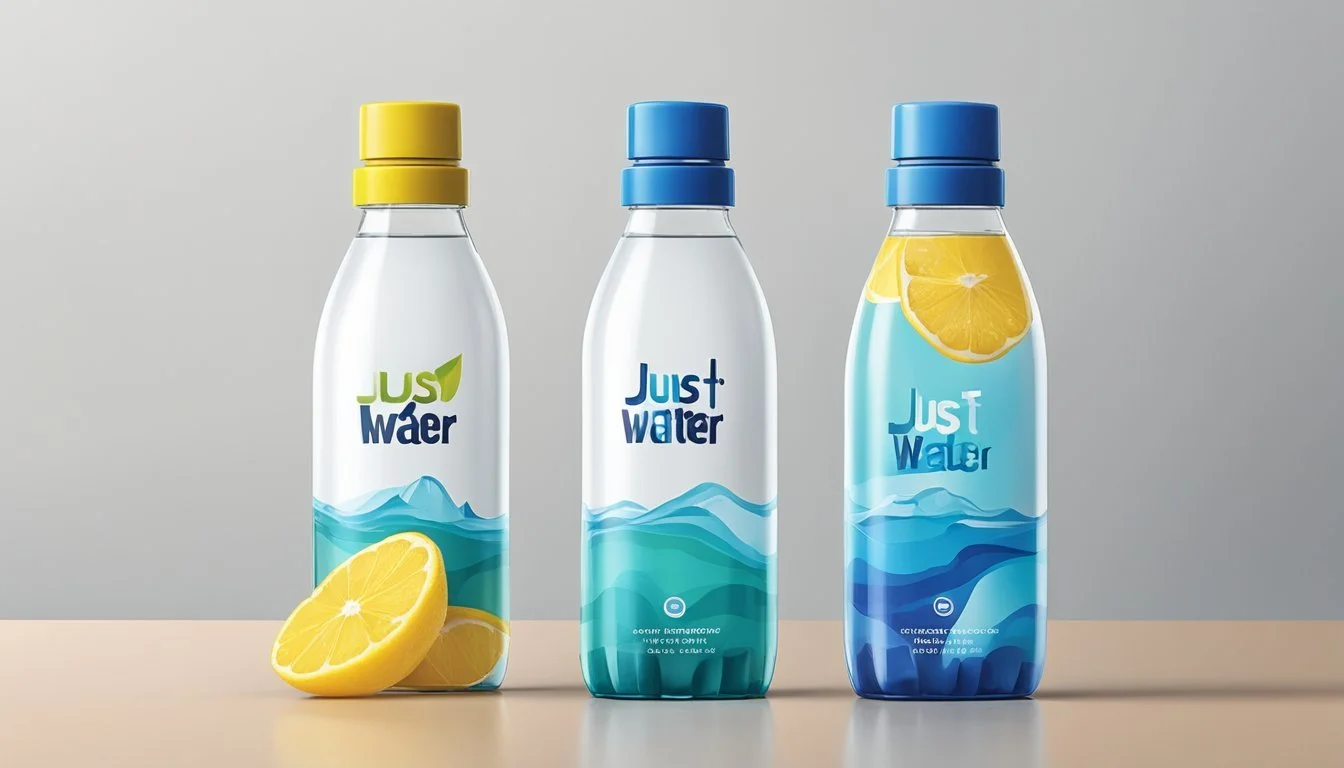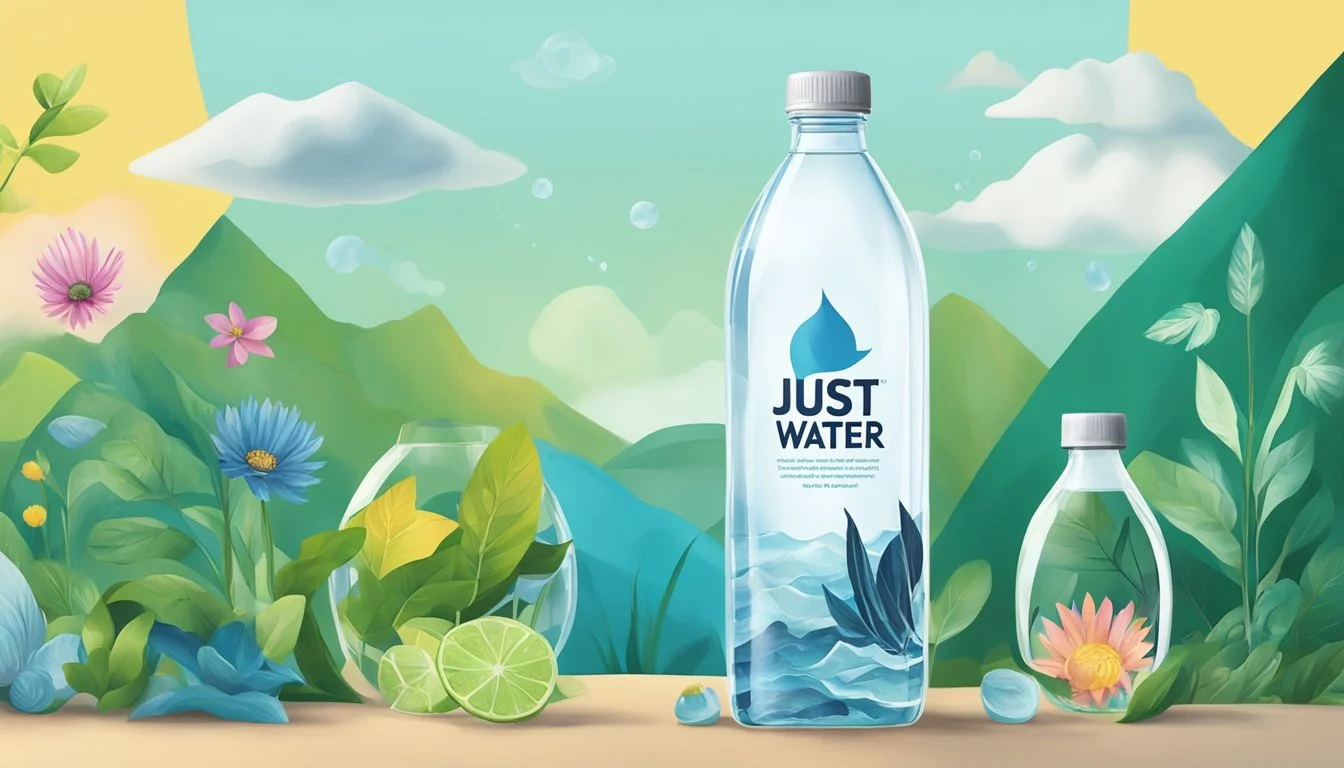Just Water vs. Defy
Which Bottled Water is Better for You?
Choosing the right bottled water can be a challenge. Just Water and Defy are two popular brands with distinct benefits and packaging that cater to environmentally conscious consumers. With both brands emphasizing sustainability and taste, making the right choice involves looking closely at what each offers.
Just Water utilizes a majority paper-based design with a bio-plastic cap, boasting BPA-free packaging that reduces the risk of chemical leaching. On the other hand, Defy offers a sleek, minimalistic packaging that promises purity and a clean taste. When it comes to eco-friendly packaging, Just Water’s paper-based carton stands out, but Defy’s taste and purity also make a strong case.
Comparing these brands requires considering taste, health benefits, and environmental impact. While Just Water shines with its eco-conscious design, Defy's appeal lies in its focus on taste and purity. Understanding these differences is crucial in deciding which bottled water best suits your needs.
Understanding Bottled Water
Bottled water comes in various types and is subject to different regulatory standards. It's important to consider what these standards mean for health and safety, and to be aware of potential environmental impacts.
Types of Bottled Water
Bottled water is categorized based on its source and treatment process. Spring water comes from an underground source and flows naturally to the surface. Mineral water contains specific proportions of minerals from its origin without any added minerals. Purified water undergoes processing to remove contaminants, and can come from any source. Artisan well water is drawn from a confined aquifer. Flavored water includes added flavors and sometimes sweeteners.
Regulatory Standards
In the United States, bottled water is primarily regulated by the Food and Drug Administration (FDA), while tap water is regulated by the Environmental Protection Agency (EPA) under the Safe Drinking Water Act. FDA standards for bottled water must be at least as stringent as EPA standards. The Centers for Disease Control and Prevention (CDC) also provides guidelines on water safety. Bottled water undergoes regular testing for contaminants, including lead, bacteria, toxins, fluoride, and chlorine.
Health and Safety Concerns
While bottled water is generally safe to drink, concerns about contaminants and chemicals can arise. Leaching of chemicals from plastic bottles and potential microbial contamination are common issues. Some bottled water contains added fluoride, which may be of concern to certain individuals. Also, environmental concerns around plastic waste highlight the need for conscious consumption. The presence of contaminants like lead and bacteria in bottled water must be closely monitored to ensure safety.
Comparing Just Water and Defy
Just Water and Defy represent two companies focused on eco-friendly bottled water, each boasting unique approaches to packaging, sourcing, and sustainability.
Brand Philosophy and Mission
Just Water emphasizes sustainability and environmental impact. The company aims to reduce single-use plastic waste by offering water in paper-based cartons with sugarcane-derived caps. This innovation reflects their commitment to reducing carbon emissions and promoting recyclable packaging.
Defy focuses on both the purity of the water and environmental responsibility. Their mission includes sourcing natural mineral water and ensuring minimal environmental disruption during the process. By prioritizing eco-friendly practices, Defy aims to balance exceptional water quality with environmental care.
Source and Processing
Just Water is sourced from Glens Falls, New York. The brand highlights responsible water sourcing, with a focus on maintaining the local ecosystem. Their water undergoes rigorous filtering at a water treatment plant to ensure purity and removal of microorganisms.
Defy sources its water from a premium natural spring known for its mineral content. This spring water is minimally processed to retain its natural minerals, providing a unique taste. The emphasis is on maintaining the water's natural state, ensuring high quality without excessive treatment.
Packaging Innovations
Just Water uses paper-based cartons combined with a sugarcane-based cap, making their packaging 100% recyclable. This innovative packaging is designed to reduce energy consumption and carbon footprint compared to traditional plastic bottles.
Defy packages its water in 100% recyclable aluminum bottles, which are lightweight yet durable. Aluminum is highly recyclable and has lower environmental impact when recycled correctly. This choice reflects Defy's commitment to sustainability and reducing single-use plastic pollution.
Analyzing Water Quality and Content
When comparing Just Water and Defy, it is essential to examine their water quality and content. This analysis will cover the taste profiles, mineral and nutrient content, and the safety and purity of both brands.
Comparing Taste Profiles
Taste is a key factor in choosing bottled water. Both Just Water and Defy undergo taste tests to ensure customer satisfaction. Just Water offers a slightly sweet, fresh taste thanks to its alkaline nature and balanced mineral content. In contrast, Defy has a clean, crisp taste due to its streamlined filtration process.
Blind taste tests often reveal personal preferences. Some people prefer Just Water's subtle flavor, while others favor Defy's neutral taste. Taste preferences can also be influenced by the mineral content of the water.
Mineral and Nutrient Analysis
Mineral content can affect the health benefits of bottled water. Just Water contains essential electrolytes like calcium, magnesium, and potassium, which support bodily functions. The specific concentrations are usually listed on the bottle label.
Defy also includes vital minerals. However, its mineral content might vary slightly, offering a different balance of nutrients.
Both brands maintain their pH levels within safe drinking standards. Defy's pH typically ranges around 7 to 8, maintaining neutral to slightly alkaline levels. Similarly, Just Water's pH is carefully controlled to provide slight alkalinity, enhancing its fresh taste.
Assessment of Safety and Purity
Evaluating safety and purity involves checking for contaminants. Both Just Water and Defy adhere to EPA legal limits for contaminants. They employ rigorous filtration methods to remove impurities, including potential toxins like microplastics and heavy metals.
Just Water prides itself on sourcing from a pristine, sustainable spring, ensuring high purity levels. Defy's rigorous purification processes focus on removing chlorination by-products and other potential contaminants.
Neither brand shows significant contamination in routine tests, making them reliable choices for safe drinking water. Additionally, their BPA-free packaging helps minimize potential exposure to hazardous chemicals.
This detailed analysis of both brands highlights their commitment to quality and safety.
Environmental and Economic Considerations
Choosing between Just Water and Defy requires evaluating their environmental footprints and cost efficiency. Both brands showcase eco-friendly initiatives, but they differ in packaging, sourcing, and consumer costs.
Environmental Footprint
Just Water emphasizes its commitment to eco-friendly packaging. The brand uses 82% renewable resources for its bottles, including plant-based plastic and paper. This choice significantly reduces the ecological footprint compared to traditional PET plastic bottles. Additionally, Just Water sources its water from responsibly managed springs, which aligns with Environmental Protection Agency guidelines.
Conversely, Defy Water employs plastic bottles, though they highlight their use of recyclable materials. Despite recycling efforts, the overall environmental impact remains considerable. Energy consumption in the production process generates higher CO2 emissions compared to Just Water. Both brands' efforts highlight a shared goal of reducing the impact of bottled water on natural resources and the environment.
Cost Analysis
In terms of cost, Just Water is relatively inexpensive. Retailing at approximately $1.99 per bottle, it appeals to consumers looking for eco-friendly options without breaking the bank. The price point reflects its sustainable practices, despite the higher energy input in production due to using renewable materials.
Defy Water, priced slightly higher, often around $2.50 per bottle, positions itself in the premium market. The additional cost can be attributed to the brand's marketing and distribution strategies rather than sustainable initiatives. Consumers may find Just Water offers a better value proposition given its balance of cost and environmental benefits.
Both brands present distinct choices, with Just Water leaning towards sustainability and affordability, while Defy focuses on a premium feel with less emphasis on environmental impact.
Consumer Convenience and Lifestyle
Consumers often prioritize convenience and how a product fits into their lifestyle when selecting a bottled water brand. Both Just Water and Defy offer unique features that cater to the modern consumer's demands for portability, accessibility, and alignment with a healthy lifestyle.
Accessibility and Convenience
Just Water and Defy are both easily accessible and portable, making them popular choices among consumers. Just Water, with its paper-based carton and sugarcane-based cap, is lightweight and easy to carry. This packaging design significantly reduces the reliance on petroleum-based plastics, aligning with eco-conscious consumer trends.
Defy, on the other hand, utilizes traditional plastic bottles but emphasizes recyclability and ease of use. The Defy bottles are designed to fit into standard cup holders, backpacks, and gym bags, enhancing portability. The availability of both brands in major retail stores and online platforms further boosts their convenience.
Health Lifestyle Compatibility
Health-conscious consumers often look for bottled water that complements their lifestyle. Just Water promotes its product with plant-based packaging, which appeals to those aiming to reduce plastic consumption and support sustainable choices. Its water also originates from public water systems, treated through advanced filtration methods that ensure high quality and safety.
Defy water is marketed with a focus on its balanced mineral content, which supports hydration and overall health. This can be particularly beneficial for maintaining better kidneys, liver, and overall body function. The brand also addresses concerns about inflammation and intestinal health, emphasizing the purity and clean sourcing of its water.
Both Just Water and Defy cater to a lifestyle that values health, hydration, and environmental responsibility, making them well-suited for diverse consumer needs.
Final Assessment
Choosing between Just Water and Defy hinges on factors like market position, brand trust, health benefits, and environmental impact. Each brand offers unique advantages, making the decision a matter of personal priorities.
Market Position and Brand Trust
Just Water is known for its environmentally friendly packaging. Utilizing 74% paper boxes and a bio-plastic cap, it appeals to eco-conscious consumers.
Defy, on the other hand, markets itself as a premium product emphasizing hydration quality.
Consumers trust brands like Fiji and Essentia for their consistent quality, but Just Water and Defy have carved out niches.
Health benefits and safety are equally prioritized, though Defy's higher price may be a barrier for some. Brand loyalty trends show Just Water appealing more to eco-friendly buyers, while Defy attracts athletes.
Final Recommendations
When considering taste, Defy's premium hydration may suit those needing high-performance water, such as athletes. Meanwhile, Just Water stands out for reducing plastic use, which should attract environmentally conscious consumers.
Environmental impact of Just Water is lower, thanks to its packaging.
Cost-wise, Just Water generally offers better value, though not always the cheapest.
Ultimately, if taste and high performance hydration are critical, Defy might be the best choice. For those placing a higher value on environmental impact and cost, Just Water is likely more appealing. Consumer trust remains strong for both, although Just Water's eco-credentials provide an extra edge.
More About Just Water
Core Hydration vs Just Water: Which Bottled Water is Better?
Icelandic Glacial vs Just Water: Which Bottled Water is Better?
Just Water vs Aqua Carpatica: Which Bottled Water is Better?
Just Water vs Cascade Mountain: Which Bottled Water is Better?
Just Water vs Crystal Geyser: Which Bottled Water is Better?
Just Water vs Hawaii Volcanic: Which Bottled Water is Better?
Just Water vs Hawaiian Springs: Which Bottled Water is Better?
Just Water vs Kirkland Signature: Which Bottled Water is Better?
Just Water vs Mountain Valley Spring Water: Which Bottled Water is Better?
Just Water vs Nestle Pure Life: Which Bottled Water is Better?
Just Water vs Richard's Rainwater: Which Bottled Water is Better?
Just Water vs San Pellegrino: Which Bottled Water is Better?
Just Water vs Solan de Cabras: Which Bottled Water is Better?
Just Water vs Talking Rain AQA: Which Bottled Water is Better?
Just Water vs Whole Foods 365: Which Bottled Water is Better?
Just Water vs Whole Foods Italian Still Mineral water: Which Bottled Water is Better?



